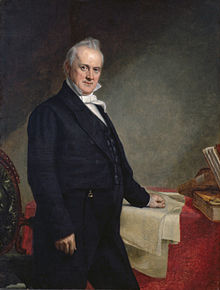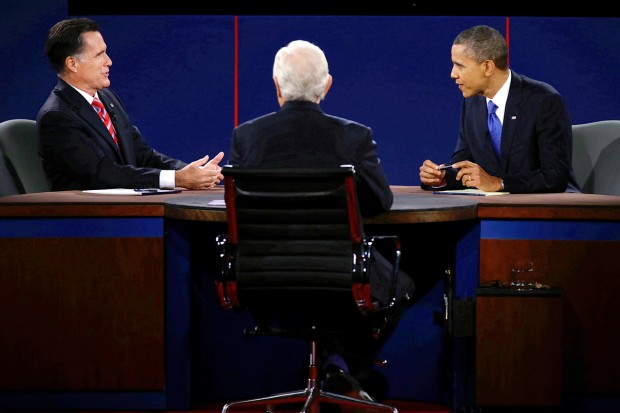
No American adoption in sight for this orphaned Russian girl looking out a window at an orphanage in the southern city of Rostov-on-Don, on December 19. Two days later Russia’s parliament gave final approval to a bill banning all adoptions from the United States, historically the major source of foster parents for expensive Russian adoptions. The bill is now before President Putin to sign. Photo: Reuters/Vladimir Konstantinov
And, befitting, the holiday season, Russian politicians and American parents are acting out a real life version of Charles Dickens’ 1843 classic, “A Christmas Carol.”
But this is no high school play.
This is…geopolitics!
Guess who landed the role of Ebenezer Scrooge, the miserly millionaire?
(Hint: type ‘World Richest Head of State Wiki’ into your Google search window)
Guess who landed the role of Bob Cratchit, the heart-of-gold, but financially strapped father of Tiny Tim?
(Clue: What country adopts the most orphans every year from Russia, 60,000 in the last 20 years?)
Guess who landed the role this Christmas of Tiny Tim, the plucky, disabled boy? As you remember, he warms hearts in the first act, by crying out at Christmas dinner “God Bless Us, Everyone!” Then, he disappears from the tale, leaving behind his crutch.
(Clue: What country has 633,000 orphans and abandoned children living in state institutions, possibly the most since World War II?)
Guess who plays the four ghosts who torment Scrooge? That’s easy – Russian journalists!
By now you have an outline of the Kremlin’s Christmas Carol, the December 2012 edition.
On Friday, the Duma’s lower house voted 470 to seven to ban American parents from adopting Russian children. The Duma’s upper house is expected to vote to pass the bill on Dec. 26, the day after the Western Christmas.
The Duma bill is known as the anti-Magnitsky bill. It was drawn up in response to an American bill signed into law Dec. 14 by President Obama. The U.S. law normalizes trade relations with Russia. It also directs the president to bar known Russian human rights violators from entering the United States or from holding American bank accounts. Initially, the law is to target 60 Russian officials implicated in the imprisonment and death of Sergei Magnitsky, a Russian lawyer.
In recent weeks, the Kremlin adroitly shifted perceptions of the law here. Instead of being seen as an attack on corrupt government officials, many Russians see it as an attack on Russia.
Realizing that few American officials have property in Russia, the Duma decided to hit Americans where it would hurt – the adoptions of Russian orphans.
Last year, American families adopted almost 1,000 orphans. American families are often seen as the only possibility for orphans with disabilities to escape institutions that are often called “Dickensian.”
On Wednesday, the day of the first Duma vote, dozens of protesters picketed outside in Arctic weather.
Mainly women, they carried signs with such slogans as:
“Why are you taking vengeance on children?”
“Children as a Strategic Weapon. Are you kidding?”
“How many children with disabilities have deputies adopted?
“Don’t deprive children of the chance to live.”
Police said the protest was not authorized. They detained about 30 protesters, mainly women. (You could almost hear a voice grumbling from inside the frost-covered Kremlin walls: ‘Bah! Humbug!’)
Inside the Duma, the vote was lopsided in part because Russia’s parliament is still largely a men’s club, almost as exclusive as the London clubs Dickens so despised in the 1840s.
Women account for only 11 percent of both Duma chambers. In contrast, the European average is 24 percent. The Nordic average is 42 percent.
In a suitably Dickensian twist, one of the legislators, Vyacheslav K. Osipov, actually voted for the anti-Magnitsky bill while dead.
Duma rules allow proxy voting, where a member votes in the absence of another member. In this case, several ballots were cast Wednesday in the name of Osipov, before legislators learned that their 75-year-old colleague had expired in a Moscow hospital.
Prior to the Duma vote, Russia’s ombudsman for children, Pavel Astakhov, a former television reporter with political ambitions, had briefed Duma deputies.

Orphaned boys and girls play in the Rostov-on-Don orphanage. Most Russian orphans are never adopted and are released to society at age 16. Follow up studies show that they suffer from high rates of addiction and incarceration.
Photo: Reuters/Vladimir Konstantinov
Astakhov and others say that 19 Russian children have died following abuse by American foster parents since the international adoptions began, in the early 1990s.
Nineteen children killed by foster parents out of 60,000 is 19 too many. But Astakhov neglected to mention that from 1991 to 2006, 1,200 Russian adopted children were killed by their Russian foster parents.
Astakhov cited the case of an American woman who placed her seven-year-old adopted son alone on a one-way flight back to Moscow in 2010.But he neglected to mention that last year Russian foster parents returned 4,500 children to orphanages.
Nor did he mention, that during the first nine months of this year, 1,291 Russian children were killed, largely by a parent. Nor did he mention that Russian ranks third in the world for suicides by minors, about 1,700 a year. One boy committed suicide because a Russian judge refused to allow him to be adopted by a Spanish couple.
Despite the Duma’s overwhelming support for the adoption ban, more rational views are appearing in Russian society.
More than 100,000 Russians have signed an online petition organized by Novaya Gazeta newspaper demanding that the Kremlin review the law.
Grigory Yavlinsky, a veteran liberal politician popular in Moscow, tweeted this week: “Because some bureaucratic scum will not be allowed into the U.S. for shopping, thousands of tiny children will be denied a normal life,”
On Thursday, at Vladimir Putin’s annual marathon press conference, the Russian president’s bravura performance before 1,000 journalists was marred by repeated questions about the adoption ban.
“I understand that the response of the State Duma is emotional. But I also think it is appropriate,” Putin said of a law that deems all of America’s 150 million parents unfit to adopt a Russian child.
“This is how we see it,” continued the Russian president. “American lawmakers sort of showed everyone who is the real master of the house, so that we don’t get relaxed. Had there been no Magnitsky, they would have found another pretext.”

Russian President Vladimir Putin was on the defensive about the Duma’s adoption ban — the top topic for questions at his 4.5 hour marathon press conference on Thursday. VOA Photo: James Brooke
Slumped in my seat in row 23, I watched one Russian journalist and after another needle their president about the adoption ban. Slowly, Putin started to sound like Ebenezer Scrooge, tossing in bed as he is haunted by visits from The Ghost of Jacob Marley, The Ghost of Christmas Past, The Ghost of Christmas Present, and The Ghost of Christmas Yet to Come.
“Do you consider this normal?” Putin finally blurted out at one journalist. “You like this? What are you? A sado-masochist? There is no need to humiliate the country! We do not forbid the adoption by foreigners in general. There are other countries besides the United States.”
Every Orthodox Christmas Eve, Mr. Putin goes to church. He appears on national television, crossing himself and lighting a candle. But Mr. Putin was not in the Christmas spirit when the adoption ban came up yet again at his press conference.
“But we are not – or, probably, I am not a very good Christian, because when you are slapped on one cheek, you are supposed to turn the other,” said Mr. Putin, black belt judo athlete. “I am not morally prepared for this so far. If we are slapped, we should respond, or otherwise we will always be slapped.”
But, in many people’s eyes, those who are getting slapped here are the kids.
In October, the Kremlin kicked out USAID, the American aid program.
A U.S. Embassy fact sheet described one program: “USAID’s child welfare program has provided over 80,000 at-risk children and their parents with innovative services designed to reduce abandonment, resulting in a 33 percent increase in family reunification and an 85 percent increase in the number of foster families in target regions.”

Created in 1957, the Grinch, now aged 55, suffered at birth from a heart “two sizes too small.” Despite this alarming condition, he eventually embraced Christmas and his heart grew three times in size.
On Dec. 31, the United Nation’s Children’s Fund is to close all activities in Russia, per Kremlin order.
One of UNICEF’s goals in Russia: reducing the number of orphans.
For Christmas season readers who find Charles Dickens’ 1843 story a little heavy going, an eminent American analyst, Theodor Seuss Geisel, better known as Dr. Seuss, has written a hipper, simpler – although equally scary — analysis of Kremlin politics.
It’s called “How The Grinch Stole Christmas!”





































